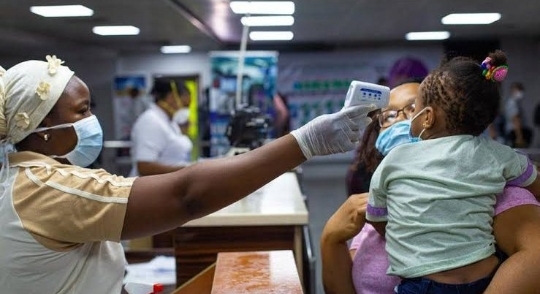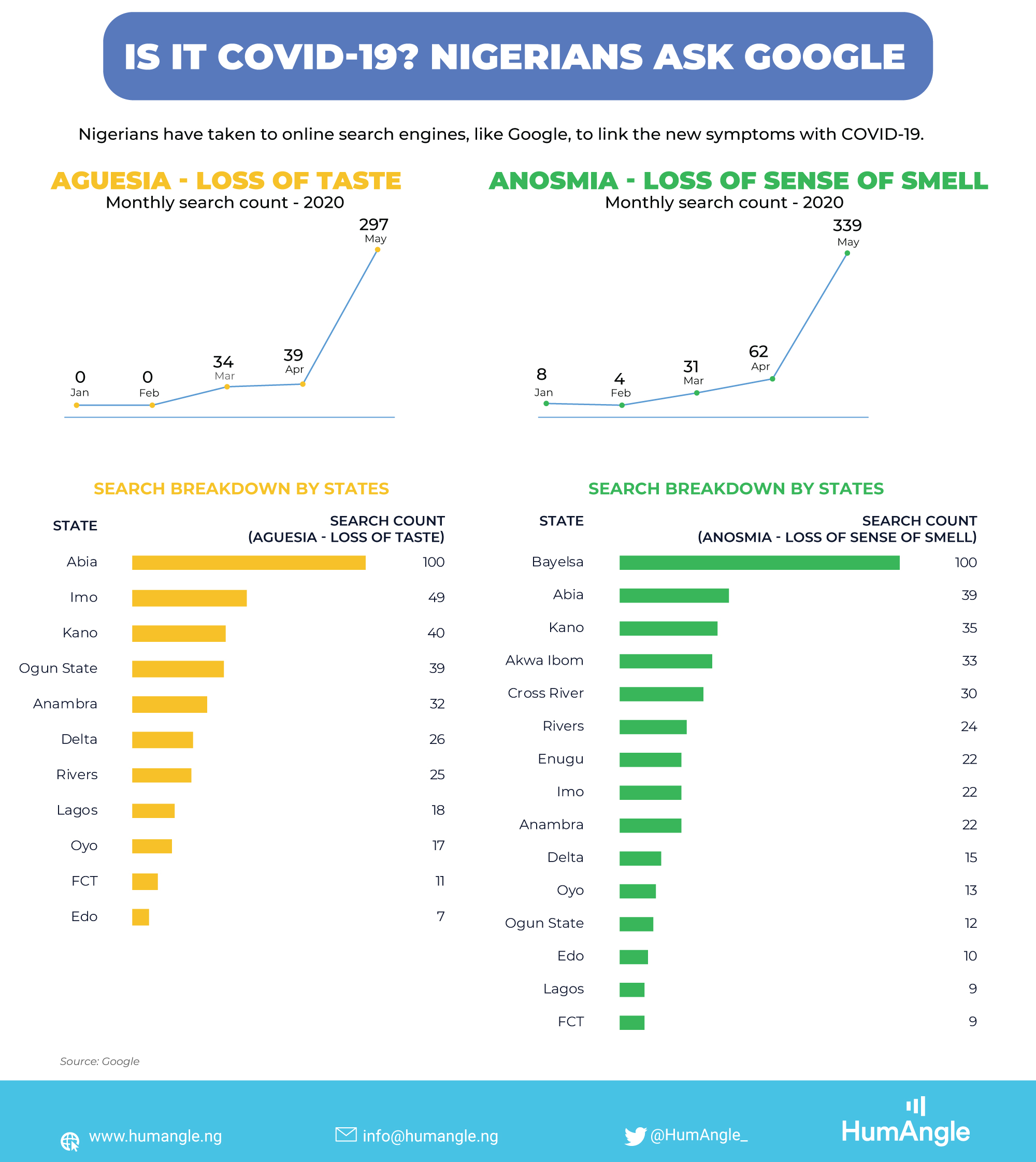COVID-19: Uncertainty As Nigerians Report ‘New Strain Of Malaria’

Fear of massive community spread has enveloped some Nigerians after several people revealed that they had suffered illnesses with symptoms similar to COVID-19.
The illness, termed ‘a new strain of malaria’, has caused people to experience loss of smell, taste and dry cough as the most prominent symptoms.
Many people have found the timing of the spread suspicious and fear that there are a lot of unknowing COVID-19 carriers.
Over 8, 000 people across several social media threads have shared their experience with these symptoms and most noted that they had supposedly been cured through self-medication.
Matthew Azuka wrote on twitter, “I thought we were the only ones. My wife and I and my fellow colleagues at work all had malaria symptoms, loss of smell and taste but we are good now.”
Paul Osa also recounted his experience and wrote, “I treated malaria about four weeks ago. I had a persistent headache, loss of taste and smell, sore throat set in, fatigue.
“I used all sorts of drugs, all gone but the persistent headache. I treated malaria again and I am stronger now. I cannot explain it.”
Richard Joe is also part of the thousands of people with similar experiences. He said, “I had lost my sense of taste and smell a few weeks ago and I am fine now.
“A friend who came to visit me during the period also had the same symptoms but is also fine now.
“Could it be COVID-19, I don’t know. I guess there is something they have not told us yet,” he said.
Is it COVID-19? Nigerians ask Google
Nigerians have taken to online search engines, like Google, to link the new symptoms with COVID-19.
According to the World Health Organisation (WHO), the symptoms of the virus include fever, dry cough, loss of smell and loss of taste.
These are the most prevalent symptoms people have reported and they have dominated the search trend in Nigeria.
According to analysis on Google trends, search for loss of smell jumped by 36 per cent between June 14 and June 17 with the numbers still increasing.
There has been a steady rise of the search from April 16. The most searched question is ‘what causes loss of smell?’
Most of the searches are from Bayelsa, Imo, Akwa Ibom, Anambra, Kano, Rivers, Enugu, Cross River, Abia, Oyo, Delta, Ogun, Lagos and the Federal Capital Territory (FCT).
Loss of taste searches have also increased by 31 per cent with a steady rise from May 10. The common question is – ‘loss of taste and smell?’
Most of the searches are from Kano, Abia, Delta, Anambra, Ogun, Rivers, Oyo, Lagos, Edo states and the FCT.
Doctors advise caution
Speaking on the new wave of illness, Dr Debola Olayinka said, “Responses just reaffirm that we have a lot of community transmission of mild COVID-19 ongoing in Nigeria.
“Imagine the number of people who have had mild COVID-19 and termed it ‘malaria with loss of smell’.
“Unfortunately, I am not sure they isolated themselves so probably, they spread it to others,” she said.
Also, Dr Nonso Egemba said, “I see people claiming that a new strain of malaria is going about causing people to lose their sense of smell.
“Please if you have lost your sense of smell, just assume you have COVID-19 and submit for testing.
“Assuming it is malaria is placing others at risk. Do the right thing.”
On May 31, Nigeria became the third African country to record over 10,000 cases of COVID-19 when 307 new cases took its tally to 10,162.
Support Our Journalism
There are millions of ordinary people affected by conflict in Africa whose stories are missing in the mainstream media. HumAngle is determined to tell those challenging and under-reported stories, hoping that the people impacted by these conflicts will find the safety and security they deserve.
To ensure that we continue to provide public service coverage, we have a small favour to ask you. We want you to be part of our journalistic endeavour by contributing a token to us.
Your donation will further promote a robust, free, and independent media.
Donate Here





